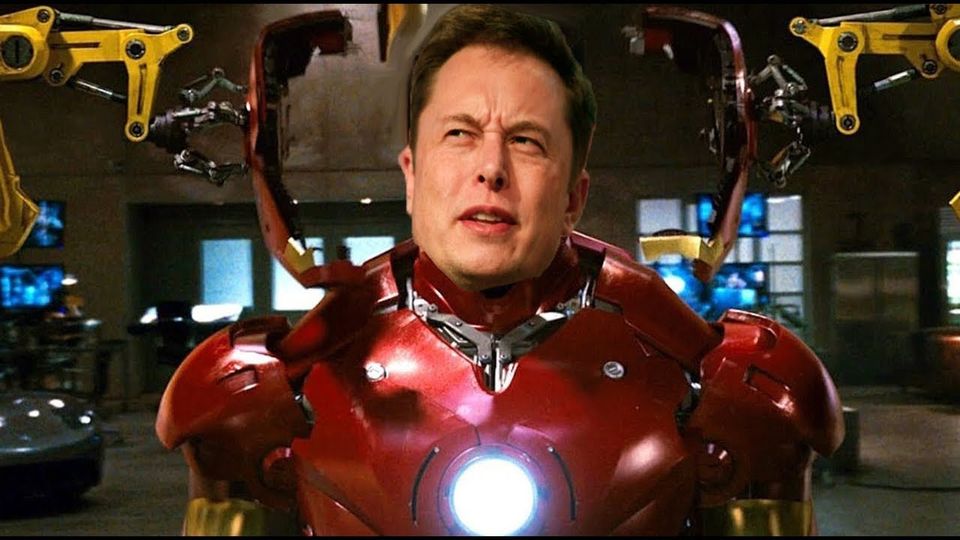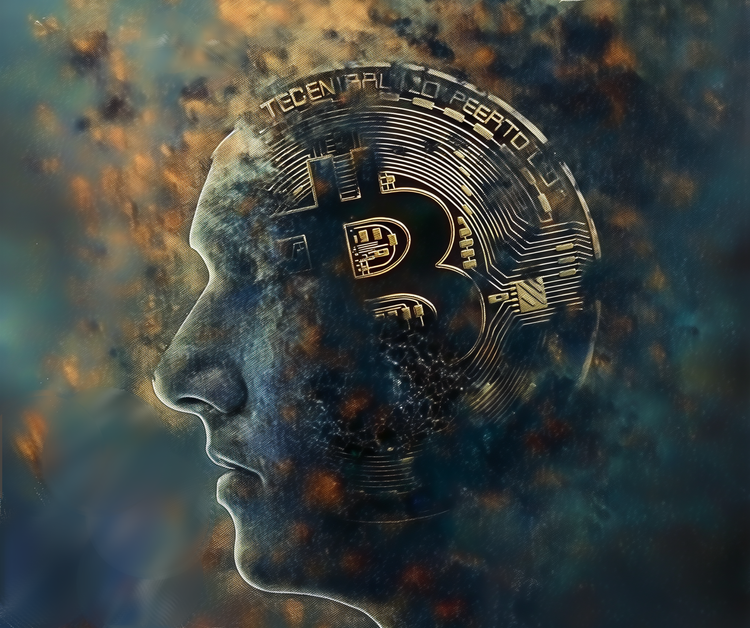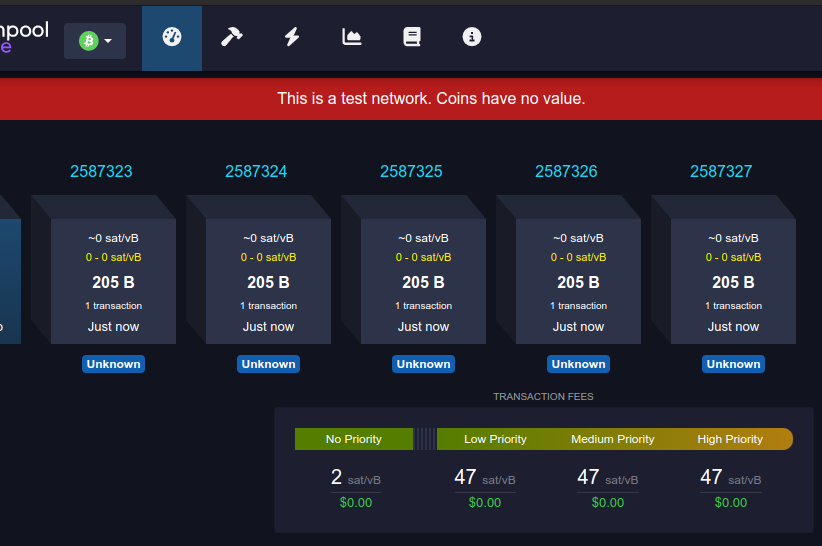Why Twitter is a Musk-Have

NOTE: Unlike everything I've ever published, the following piece is highly speculative and may merely be the nerdy ravings of a techno-optimist transhumanist cyberpunk.
Plenty of pundits are weighing in on Elon Musk's bid to take over Twitter and the Twitter Board's initial attempts to stave off his power grab. There's no shortage of hot takes of how a Musk-run platform will be a huge improvement / disaster / nothingburger. None of these analyses have been interesting to me because Twitter will remain a centralized service and thus still have the same potential points of failure. I find Bluesky much more interesting from a technical perspective.
What I've found lacking from recent discussions is the WHY. The narratives I've seen propagated are shallow and unconvincing.
What is Musk's modus operandi? Let's look at his impressive portfolio of companies:
Zip2 was the first company Musk founded back in 1995. It provided a searchable business directory - basically an “internet version of the yellow pages” bundled with maps. The company's mission, according to Musk, was “that everyone ought to be able to find the closest pizza parlor and to be able to figure out how to get there.”
PayPal merged with Musk’s next company, X.com, in 2000. PayPal is a multinational financial technology company that originally aimed to become native internet money but ended up working as an electronic alternative to checks or money orders by supporting online money transfers.
SpaceX designs, manufactures, and launches advanced rockets and spacecraft far more cost effectively than government programs. Musk considers this a necessary step in order to establish a foothold for humanity on other planets. Becoming a multiplanetary species is the only way to make humanity more resilient to catastrophes that could cause our extinction.
Starlink is a satellite internet constellation operated by SpaceX. Using advanced satellites in a low orbit, Starlink enables video calls, online gaming, streaming, and other high data rate activities that historically have not been possible with satellite internet. Users can expect to see download speeds between 100 Mb/s and 200 Mb/s and latency as low as 20ms in most locations.
Tesla is accelerating the world's transition to sustainable energy with electric cars, solar, and integrated renewable energy solutions for homes and businesses. Tesla offers the latter because it acquired SolarCity, a company focused on door-to-door sales of solar energy generation systems. Tesla is also poised to disrupt both the taxi and trucking industry with its autonomous vehicles.
OpenAI, a nonprofit research and development company, in 2015. The company is a DeepMind competitor with the goal of ensuring that “artificial general intelligence benefits all of humanity.” OpenAI is one of the leading AI research labs in the world, with the ultimate goal of being the first company to design a machine with the learning and reasoning powers of a human mind.
Neuralink develops ultra high bandwidth brain-machine interfaces to connect humans and computers.
The Boring Company creates safe, fast-to-dig, and low-cost transportation, utility, and freight tunnels to solve traffic, enable rapid point-to-point transportation, and transform cities. It may some day also build hyperloop systems that enable passengers to travel at 600 MPH.
Meanwhile, Twitter aims to serve as a platform for public conversation.
Musk tends to build companies that solve big problems.
| Company | Improves |
|---|---|
| Boring | Transportation |
| Neuralink | Communication |
| OpenAI | Productivity |
| PayPal | Commerce |
| SpaceX | Transportation & Civilization Robustness |
| Starlink | Communication |
| Tesla | Transportation & Energy |
| Communication | |
| Zip2 | Information Retrieval |
I'm seeing a general theme that Elon's goals are to make humanity more productive, sustainable, and interconnected.
Why Musk Claims He Wants Twitter
"Free speech" is a great narrative to get people motivated and/or riled up.
🚀💫♥️ Yesss!!! ♥️💫🚀 pic.twitter.com/0T9HzUHuh6
— Elon Musk (@elonmusk) April 25, 2022
Sure, it's a noble goal and all but if your primary concern is unfettered speech, there are other platforms like Mastodon, or you can create the 20th "free speech" centralized platform. But those platforms won't have nearly the same potential due to network effects.
I don't find it logical for anyone, even the world's richest man, to spend $43 billion just because they are a free speech absolutist or are annoyed by spambots. Nobody makes billion dollar trades unless they believe there is additional value to be unlocked. And Elon says so himself, though he has yet to say how his stated objectives would result in increased value for the platform.
Twitter's Problems
Twitter's "Top Tweets" default timeline does some pretty screwy stuff. I hate it and regularly get annoyed when it switches me back to "Top Tweets" without my selecting it.
No, I shall not kneel before Twitter's "top tweets" algorithm. Gimme that raw feed directly into my ocular nerve, @jack. Stop trying to switch it back!
— Jameson Lopp (@lopp) September 9, 2020
At the risk of making a sweeping generalization, I suspect that the tweets with the most engagement that are most likely to end up on a "Top Tweets" timeline are NOT those that are more informative or insightful. Rather, they are funny / dunks / clickbait that appeals to the lowest common denominator of Twitter user. In my experience it takes a lot of effort to curate your feed in order to achieve a high signal-to-noise ratio.
Along the same vein, Twitter does not scale well for accounts that have hundreds of thousands if not millions of followers. I've experienced this phenomenon myself, as Twitter has other algorithms that try to prevent popular accounts from being overwhelmed with useless notifications. Musk has noted that engagement and Twitter usage by highly followed accounts seems to be dropping off.
Most of these “top” accounts tweet rarely and post very little content.
— Elon Musk (@elonmusk) April 9, 2022
Is Twitter dying? https://t.co/lj9rRXfDHE
As such, "open sourcing" these algorithms couldn't hurt. Doing so ought to allow folks to find their flaws and improve upon them.

The politicization of Twitter as a platform is certainly problematic in the sense that a neutral platform ought to end up with a larger total addressable market of users.

For Twitter to deserve public trust, it must be politically neutral, which effectively means upsetting the far right and the far left equally
— Elon Musk (@elonmusk) April 27, 2022
Of course I'd argue that it's pretty much impossible for a centralized platform to be completely neutral. Only decentralized protocols that don't have chokepoints where pressure can be applied have any chance of that.
For example, Twitter itself risks being deplatformed from mobile app stores if they decide that it's not sufficiently policing hate speech.
The spambot problem is concerning for accounts with large followings. Some of my peers have had to disable replies in order to combat it. It would be so easy to fix with the right incentives, though I suspect Twitter has balked at how that might hurt engagement metrics.
Yo @jack
— Jameson Lopp (@lopp) May 6, 2021
Let us choose to charge a few sats if someone wants to reply to our tweets or tag us.
Spambot problem solved.
Twitter's Potential
Jack weighed in on Musk's ambitions:
In principle, I don’t believe anyone should own or run Twitter. It wants to be a public good at a protocol level, not a company. Solving for the problem of it being a company however, Elon is the singular solution I trust. I trust his mission to extend the light of consciousness.
— jack⚡️ (@jack) April 26, 2022
Most of this is pretty boilerplate and expected, but the last sentence caught my attention.
So I dug a bit deeper.
I love Twitter. Twitter is the closest thing we have to a global consciousness.
— jack⚡️ (@jack) April 26, 2022
This isn't a new concept from Jack.
16/I think Twitter is the closest thing we have to a global consciousness. And I believe the world needs that right now.
— jack⚡️ (@jack) January 29, 2015
I looked into the commentary around Jack's tweets and can see a lot of pushback on reasons why Twitter, in its current state, is not representative of the 8 billion people on Earth. Indeed, at only a few hundred million active users, that's certainly true. Jack's statement is not about current reality, but rather, it's aspirational.
It turns out the Musk has made similar statements...
We should strive to extend the light of consciousness into the cosmos
— Elon Musk (@elonmusk) January 23, 2020
Rage, rage against the dying of the light of consciousness
— Elon Musk (@elonmusk) May 1, 2020
I am accumulating resources to help make life multiplanetary & extend the light of consciousness to the stars
— Elon Musk (@elonmusk) March 21, 2021
I certainly agree with this concept. The potential of internet-based social networks has been obvious to me from the beginning. This was my first tweet upon signing up:
finally decided to assimilate into the hive...
— Jameson Lopp (@lopp) March 10, 2009
Twitter is more than the sum of its parts - it is a mechanism for seeking and forming consensus about pretty much anything. It is a stream of consciousness from all those who choose to participate. It is a crude form of memetics that operates at the speed of light... with several points of friction.
The Next Leap Forward in Communication
I'm a lifelong computer nerd. I love technology. I hate computer interfaces.
As a programmer, building complex software is a tedious and masochistic process. The problem is that computers do exactly what you tell them to, and even modern programming languages require writing a ton of code in order to cover every possible state / input. Programming languages themselves are interfaces - all code eventually gets converted into machine code (binary) - I fully expect that in the future there will be programming languages that have interactive interfaces that accept speech or even thought inputs. But I digress.
Text is a shitty communications medium. It strips out so much context from the mind of the writer - this is why writing well is an art. Text is slow for humans to parse accurately and even slower for humans to write precisely. Many humans are poor readers who miss nuance, even if the writer does a good job of conveying it.
Imagine if you no longer had to convert your ideas into finger movements to press buttons and then read back that output on a screen to double check that the message you intended was transcribed correctly.
I'll be excited about mobile phones / computing when they have an interactive Minority Report interface. Thumb typing sucks. /cc @elonmusk
— Jameson Lopp (@lopp) November 10, 2013
I'd be willing to pay a year's salary for a computer if it was capable of responding to my commands at the speed of thought.
— Jameson Lopp (@lopp) August 31, 2017
Imagine if you could instantly communicate with your fellow humans at the speed of thought, while also being able to communicate your feelings and additional context as a substrate to your higher level ideas. Imagine how much richer our communication can be with that level of bandwidth.
Stepping back even further, it's ridiculous that we remain limited in our communication by human language. Why should I be unable to interact with someone who only understands Arabic when we are both thinking and understanding the same concepts? I see no reason why it shouldn't be technically possible to develop universal translation that operates at the speed of thought.
Toward Global Consciousness
The Internet, as it stands today, is a library. It is the collective sum of (almost) all human knowledge and opinion. Access to the internet can provide an instant connection between any two human minds almost anywhere on the planet. But this is a far cry from a strong collective consciousness.
According to famed psychologist Carl Jung, humans have a collective unconscious, meaning that human beings share a subconscious perception of reality. We use words, stories, memes, etc to share our perception of reality with one another, to reinforce and better understand it. But our communications options are suboptimal.
The internet makes more types of collaboration involving larger groups possible, along with faster sharing of ideas, and this takes us further in the direction of a collective consciousness. Is a hive mind inevitable?
If we think of the internet as a brain-to-brain connection interface, it's not a stretch to see that isolated thinking becomes increasingly difficult to sustain due to the accelerating rate at which we’re encouraged to share our thoughts. Somewhere along the way, an individual brain starts to act more like a neuron to the synapses of the internet brain than as a self-contained unit. This is starting to become evident as we generally begin to mimic much more information than we create, especially with sharing, reposting, and retweeting.
The internet helps to coalesce all of our individual thoughts, ideas, morals, and beliefs. To be clear, I'm not claiming that the end result is homogeneous. Rather, any global consciousness will be composed of many different and overlapping perspectives.
If you use Twitter then you’re familiar with trending topics. Trending topics are determined by the collective consciousness (with the caveat that Twitter's algorithms are almost certainly biased and can be manipulated.) If certain words or phrases are simultaneously appearing from accounts worldwide, Twitter recognizes this subject as a collective trend.
In a sense, global consciousness has always existed, but in a much weaker, harder to grasp, and higher latency form. The next generation of technologies will supercharge it.
Enter Neuralink and OpenAI
You may know of Neuralink as a medical device to help physically disabled people improve their interactions with machines. But that's only the beginning. In their words:
The Link is a starting point for a new kind of brain interface. As our technology develops, we will be able to increase the channels of communication with the brain, accessing more brain areas and new kinds of neural information. This technology has the potential to treat a wide range of neurological disorders, to restore sensory and movement function, and eventually to expand how we interact with each other, with the world, and with ourselves.
That last bit is the real kicker. Her's a quote from Elon about his perspective on human-computer interfaces.
We already have a digital tertiary layer in a sense, in that you have your computer or your phone or your applications…The thing that people, I think, don’t appreciate right now is that they are already a cyborg…If you leave your phone behind, it’s like missing limb syndrome. I think people—they’re already kind of merged with their phone and their laptop and their applications and everything.
Remember the Twitter Firehose? Probably not, unless you've been on Twitter for more than 7 years. It used to be that you could pay Twitter to access the raw stream of everyone's consciousness as they were broadcasting it across the globe. But then Twitter shut it off, which was widely regarded as a dick move. These days they offer paid access to the "Decahose" which is supposedly a 10% random sample of the Firehose.

Musk is buying one of the best natural language training datasets along with one of the most well-connected network graphs of humans in the world. He has both the resources and the drive to supercharge the connectivity and utility of this network.
Low Time Preference Bets
Elon is known for making huge bets on long-term plays that take decades to come to fruition. I see his bet on Twitter as being in the same spirit. He knows it will be at least a decade before Neuralink and OpenAI start impacting mainstream users.
So why does Musk need Twitter? It's the data and the network of people. You could argue that by censoring certain behaviors and NOT censoring spambots (very well) Twitter is dropping the ball and screwing with the integrity / value of the data set, thus reducing engagement. The amount of value that could be unlocked by merging all of these technologies, thus increasing potential economic interactions and productivity, is massive.
There will be challenges, for sure. Improving communication technology is a double-edged sword: while you speed up the spread of information, so too do you speed the spread of misinformation. Paid advertising , propaganda, fake news, and conspiracy theories can be used to manipulate the masses. Any tool or technology can be abused.
I dread the day brain interfaces are a reality as I fear we won't have developed adequate firewall technology.
— Jameson Lopp (@lopp) May 18, 2020
And yet we should strive to continue shrinking the world. This desire for human connection helps us find like-minded individuals and groups through our online interactions that give us a sense of belonging. The realization that we have created connections that transcend borders, cultures, and languages improves collaboration at a global scale.
Just as international travel has been shown to have many benefits such as encouraging empathy, improving understanding of other cultures and perspectives, increasing creativity, trust, and self awareness, so too will improving our digital interconnectedness make us more human and less likely to treat "strangers" as being subhuman. If we want to improve the chances that human civilization has of passing through the Great Filter unscathed then no price is too high.







